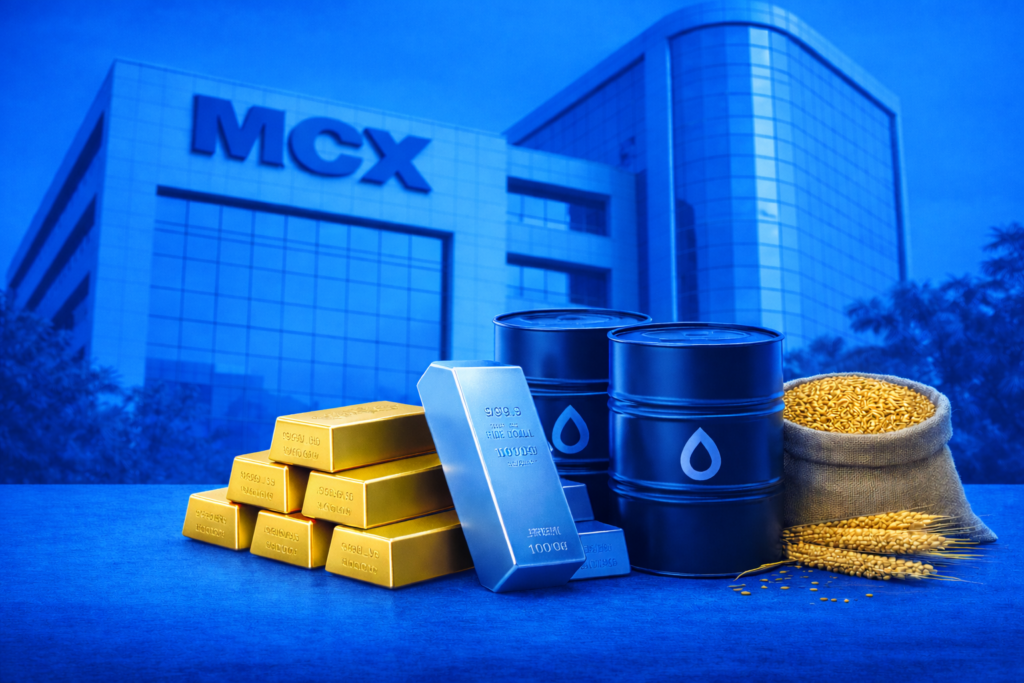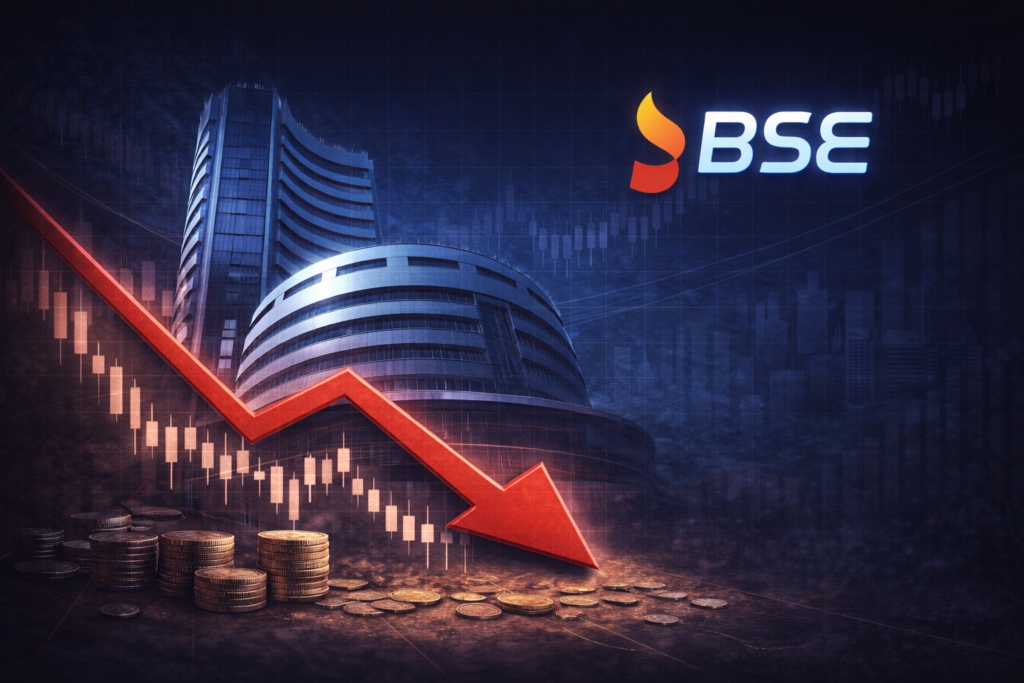Quick Summary:
– Due to urbanization, the expanding middle class’s consumption and relatively favorable state policies, the Indian liquor industry is flourishing.
– Key Players in the market, such as United Spirits, Radico Khaitan, and United Breweries, have significant company presence in established brands in the premium segment.
– They represent an excellent bet to many investors as liquor stocks are seen as defensive and safe investments (people consume liquor regardless of the economic and political environment, and demand and consumption generally increase in bad economic and political times).
– The demand for liquor stocks is dependent upon demand, government regulations and policies, taxation, and competitive positioning.
– The key to investing in any liquor stocks is assessing all of the financial and condition metrics, as well as current market conditions, behaviour, and political conditions/impacts.
Overview of the Liquor Industry in India
India’s alcohol market was valued at USD 52.5 billion in 2020 and has been growing at a CAGR (Compound Annual Growth Rate) of 6.8%. The production of alcoholic beverages increased by 23.8% between 2015-16 and 2018-19, reflecting strong domestic demand. Factors driving this growth include:
- Urbanisation: More people are moving to cities with greater access to premium alcohol brands. Also, the rise of pubs, bars, and restaurants has increased alcohol consumption, particularly in urban areas.
- Rising Middle-Class Consumption: The share of upper-middle-income consumers in alcohol consumption grew from 7% to 21% and is expected to reach 44% by 2030.
- Shifting Consumer Preferences: The number of alcohol consumers in India rose from 219 million in 2005 to 293 million in 2018 and is expected to reach 386 million by 2030.
- Favourable State Policies: Some states, like Maharashtra and Karnataka, offer subsidies for local alcohol manufacturing, supporting industry growth.
Key Players in Liquor Stocks in India
India’s liquor industry is dominated by well-established companies that hold a strong market share. Some of the leading players include:
- United Spirits (a subsidiary of Diageo): One of the largest spirits manufacturers in India.
- Radico Khaitan: Known for premium whiskey and vodka brands.
- United Breweries (controlled by Heineken): A leading player in the beer segment.
- Globus Spirits: Focuses on country liquor and premium spirits.
- Tilaknagar Industries: Known for its brandy segment.
These companies benefit from strong brand recognition, established distribution networks, and growing demand for premium liquor.
Why Invest in Liquor Stocks?
The liquor industry in India has shown consistent growth, making alcohol stocks an attractive investment option. Factors like increasing consumption, strong brand presence, and the industry’s resilience to economic downturns contribute to its appeal. Some more reasons to invest in liquor stocks are:
Rising Alcohol Consumption Trends
India’s alcohol consumption has been increasing due to factors like rising disposable income, urbanisation, and changing social norms. The demand for premium and craft spirits is also growing, particularly among younger consumers. This shift benefits liquor companies that offer high-margin products, leading to better profitability and stock performance.
Strong Brand Presence and Market Stability
The liquor industry is dominated by a few well-established players with strong brand recognition. Companies with a diverse portfolio of alcoholic beverages, including whiskey, rum, and beer, maintain steady market demand. Well-known brands have pricing power, allowing them to pass on cost increases without significantly affecting sales. This stability makes liquor stocks less volatile compared to other sectors.
Liquor Stocks as Defensive Investments
Liquor stocks are considered defensive investments because alcohol consumption remains stable even during economic downturns. Unlike cyclical industries that depend on economic growth, the demand for alcoholic beverages does not fluctuate significantly. This makes liquor stocks a reliable choice for long-term investors looking for steady returns.
Top Liquor Stocks to Buy in India
Liquor stocks in India represent shares of companies involved in the production, distribution, and sale of alcoholic beverages. These stocks are influenced by factors such as regulatory policies, consumer demand, and economic conditions. Key players include:
| Stock Name | Market Cap (₹ Cr) | Close Price (₹) | 1Y Return (%) |
| United Spirits Ltd | 97,130.43 | 1,306.15 | 12.04 |
| United Breweries Ltd | 53,062.15 | 1,912.85 | 11.66 |
| Radico Khaitan Ltd | 27,899.23 | 2,065.35 | 31.57 |
| Allied Blenders and Distillers Ltd | 8,889.19 | 310.75 | -2.25 |
| Tilaknagar Industries Ltd | 4,385.81 | 218.91 | 1.44 |
| Globus Spirits Ltd | 2,466.78 | 883.75 | 14.02 |
| Som Distilleries and Breweries Ltd | 2,311.04 | 112.21 | 4.73 |
| Sula Vineyards Ltd | 2,200.56 | 253.65 | -55.08 |
| Associated Alcohols & Breweries Ltd | 2,137.32 | 1,062.55 | 97.39 |
| G M Breweries Ltd | 1,457.41 | 612.1 | 24.11 |
United Spirits Ltd
United Spirits Ltd is a market leader in the Indian alcoholic beverages industry, operating under Diageo. The company offers a diverse product range, including premium whiskey brands like Johnnie Walker and Black Dog, as well as mass-market options such as McDowell’s No.1. Its focus on premiumisation and strategic brand positioning has driven consistent growth, making it a strong investment prospect.
- Market Cap: ₹97,130.43 crore
- 1-Month Return: -12.11%
- 1-Year Return: 12.04%
- 52-Week High Difference: -30.15%
United Breweries Ltd
Known for its Kingfisher brand, United Breweries Ltd is one of India’s largest beer manufacturers. The company has a strong distribution network and a growing presence in the premium beer segment. It continues to focus on production expansion and premium product offerings, catering to increasing urban demand.
- Market Cap: ₹53,062.15 crore
- 1-Month Return: -13.38%
- 1-Year Return: 11.66%
- 52-Week High Difference: -20.22%
Radico Khaitan Ltd
Radico Khaitan is a leading IMFL (Indian Made Foreign Liquor) manufacturer known for brands like Magic Moments Vodka, 8 PM Whisky, and Contessa Rum. Its strong brand equity, innovation, and market expansion make it a strong contender in the industry.
- Market Cap: ₹27,899.23 crore
- 1-Month Return: -12.34%
- 1-Year Return: 31.57%
- 52-Week High Difference: -27.71%
Allied Blenders and Distillers Ltd
Allied Blenders and Distillers is well-known for Officer’s Choice Whisky, catering to both domestic and international markets. The company’s brand-building initiatives and efficient supply chain contribute to its market presence.
- Market Cap: ₹8,889.19 crore
- 1-Month Return: -21.14%
- 1-Year Return: -2.25%
- 52-Week High Difference: -43.01%
Tilaknagar Industries Ltd
Tilaknagar Industries focuses on Indian Made Foreign Liquor (IMFL), with key brands like Mansion House Brandy. Its strategic expansion, product innovation, and sustainability initiatives position it for long-term growth.
- Market Cap: ₹4,385.81 crore
- 1-Month Return: -41.99%
- 1-Year Return: 1.44%
- 52-Week High Difference: -108.76%
Globus Spirits Ltd
Globus Spirits operates across various liquor segments, including ethanol production and IMIL (Indian Made Indian Liquor). The company benefits from government ethanol policies and an integrated business model.
- Market Cap: ₹2,466.78 crore
- 1-Month Return: -6.92%
- 1-Year Return: 14.02%
- 52-Week High Difference: -54.99%
Som Distilleries and Breweries Ltd
Som Distilleries is known for products like Hunter Beer and Black Fort. Its focus on premiumisation and capacity enhancement supports its market expansion.
- Market Cap: ₹2,311.04 crore
- 1-Month Return: 3.47%
- 1-Year Return: 4.73%
- 52-Week High Difference: -32.7%
Sula Vineyards Ltd
Sula Vineyards is a leader in India’s wine industry, and it has brands like Rasa and Dindori. The company is expanding its portfolio and wine tourism initiatives, leveraging its strong brand presence.
- Market Cap: ₹2,200.56 crore
- 1-Month Return: -28.84%
- 1-Year Return: -55.08%
- 52-Week High Difference: -130.24%
Associated Alcohols & Breweries Ltd
A leading IMFL manufacturer, Associated Alcohols & Breweries has strong brands like Central Province Whisky. The company is focusing on premiumisation and market expansion, making it a promising investment.
- Market Cap: ₹2,137.32 crore
- 1-Month Return: -22.42%
- 1-Year Return: 97.39%
- 52-Week High Difference: -40.79%
G M Breweries Ltd
G M Breweries Ltd specialises in the manufacturing and distribution of country liquor and Indian-made foreign liquor (IMFL). The company operates a well-established brand portfolio catering to the mass market, with a focus on cost efficiency and high-volume sales. Its consistent profitability and strong regional presence make it a notable player in the liquor industry.
- Market Cap: ₹1,457.41 crore
- 1-Month Return: -13.94%
- 1-Year Return: 24.11%
- 52-Week High Difference: -71.38%
Factors Influencing Alcohol Stock Prices
Alcohol stock prices fluctuate due to several factors, including government policies, taxation, and shifts in consumer demand. Understanding these influences helps you assess investment risks and opportunities in the liquor sector. So, let’s do just that.
Government Policies and Regulations
Liquor is one of the most heavily regulated industries in India, with each state having its own rules for production, distribution, and sales. Restrictions on advertising, licensing fees, and periodic bans in certain states impact company revenues and stock prices.
Additionally, any policy changes, such as restrictions on sales through retail stores or bars, can directly affect demand and profitability.
Impact of Excise Duties and Taxes
Excise duties (taxes imposed on alcohol production and sale) form a major revenue source for state governments. Frequent tax revisions impact liquor companies’ pricing strategies and profit margins. If a state increases excise duty, liquor prices rise, which can reduce sales volume.
On the other hand, lower tax rates can boost demand and benefit companies. Investors should track changes in excise policies as they significantly influence alcohol stock performance.
Consumer Preferences and Market Demand
The rising demand for premium brands, craft spirits, and low-alcohol beverages reflects evolving buying patterns. Companies that adapt to these trends by introducing premium products or expanding into new categories tend to perform better in the long run.
Seasonal demand, festival sales, and economic conditions also affect liquor consumption, making market trends an important factor when evaluating alcohol stocks.
How to Evaluate Liquor Stocks in India for Investment
Investing in liquor stocks requires a thorough evaluation of financial performance, market trends, and long-term growth potential. The alcohol industry in India is influenced by regulations, taxation, and changing consumer preferences, making it important to assess key factors before investing. Let’s look at these in a little more detail.
Key Financial Metrics for Alcohol Stocks
When evaluating liquor stocks, look at financial indicators that reflect a company’s profitability and stability. These include:
- Revenue Growth: Consistent revenue growth indicates strong demand for a company’s products. Compare year-on-year growth to understand its market position.
- Profit Margins: Gross and net profit margins show how efficiently a company operates. Higher margins indicate better cost management and pricing power.
- Debt-to-Equity Ratio: This metric compares a company’s debt to its equity. A lower ratio suggests financial stability, while a high ratio means the company relies heavily on borrowed funds.
- Return on Equity (ROE): ROE measures how efficiently a company generates profits from shareholders’ investments. A higher ROE indicates strong financial performance.
- Price-to-Earnings (P/E) Ratio: The P/E ratio helps assess whether a stock is overvalued or undervalued compared to its earnings. Compare this with industry peers to gauge investment potential.
Understanding Alcohol Share Price Fluctuations
Liquor stocks experience price fluctuations due to multiple factors, such as:
- Regulatory Changes: Changes in liquor policies, taxation, or state-wise restrictions directly impact stock prices.
- Input Costs: Prices of raw materials like grains, molasses, and packaging materials affect production costs and, in turn, profitability.
- Consumer Demand: Seasonal demand, festival sales, and premiumisation trends (shift toward premium brands) influence stock movements.
- Global Market Trends: International demand for Indian liquor brands, trade policies, and foreign exchange fluctuations impact stock valuations.
Monitoring these factors helps you understand why liquor stocks rise or fall, allowing you to make better investment decisions.
Long-Term Growth Potential in the Liquor Sector
The liquor industry in India has long-term growth potential due to increasing disposable incomes, premiumisation, and expanding export markets. Companies investing in premium liquor, craft spirits, and new product categories tend to have better growth prospects. Additionally, brands that adapt to regulatory changes and shifting consumer preferences are more likely to sustain profitability.
Risks and Challenges in Investing in Liquor Stocks
The alcohol industry is influenced by regulations, economic conditions, and shifting consumer preferences, all of which can impact stock performance. Here are some risks that you should be aware of:
Regulatory Uncertainty in the Alcohol Industry
Government policies on alcohol production, distribution, and sales vary across states, creating compliance challenges for liquor companies. Frequent tax changes, advertising restrictions, and licensing rules can directly affect profitability.
Moreover, some states have even imposed bans or stringent regulations, impacting market access for liquor brands. Keeping track of policy changes is important if you’re investing in this sector.
Economic Factors Affecting Liquor Stocks in India
Economic conditions influence liquor sales and stock performance. During economic slowdowns, premium liquor sales may dip as consumers opt for cheaper alternatives, while economic growth often boosts demand for high-end products.
Inflation, taxation policies, and input costs—such as raw materials for alcohol production—also affect profit margins. Additionally, foreign exchange fluctuations impact liquor companies that rely on imported raw materials or have international operations.
Impact of Changing Consumer Trends
Consumer preferences in the alcohol market are evolving. There is growing demand for premium and craft liquor brands, healthier alternatives, and low-alcohol beverages. Companies that fail to adapt to these trends risk losing market share.
Shifts in social behavior, such as increased health consciousness or changing drinking habits, can also impact sales. Monitoring these trends can help you assess which liquor stocks have long-term growth potential.
Conclusion
Liquor stocks in India present a strong investment opportunity, backed by increasing consumption trends and brand diversification. Whether you prefer market leaders with steady growth or mid-cap players with high potential, evaluating financial performance and market positioning is key.
Platforms like Appreciate simplify the process of researching and investing in US markets. With tools to analyse top stocks, track prices, and access in-depth insights, you can make informed investment decisions with confidence. Download the app now and stay ahead in the market.
Frequently Asked Questions (FAQs)
Which are the best liquor stocks in India for 2025?
The best liquor stocks depend on factors such as market performance, brand strength, and financial stability. Some of the top stocks based on market capitalisation and returns include:
- United Spirits Ltd: A market leader with strong premiumisation strategies.
- Radico Khaitan Ltd: Consistent growth with a diverse product portfolio.
- Associated Alcohols & Breweries Ltd: High 1-year return and focus on premium segments.
How does alcohol share price impact investment decisions?
Alcohol share prices fluctuate based on market trends, demand patterns, regulatory changes, and financial performance. Investors should analyse:
- Historical returns to assess stability.
- Regulatory impact on taxation and distribution policies.
- Company strategies for expansion and premiumisation.
Are liquor stocks in India a good long-term investment?
Liquor stocks can be a stable long-term investment due to rising consumer demand, brand loyalty, and evolving drinking preferences. However, factors such as government regulations, taxation, and competition play a role in determining long-term returns. Investors should focus on companies with strong fundamentals, market leadership, and premium product portfolios.
Disclaimer: Investments in securities markets are subject to market risks. Read all the related documents carefully before investing. The securities quoted are exemplary and are not recommendatory.























